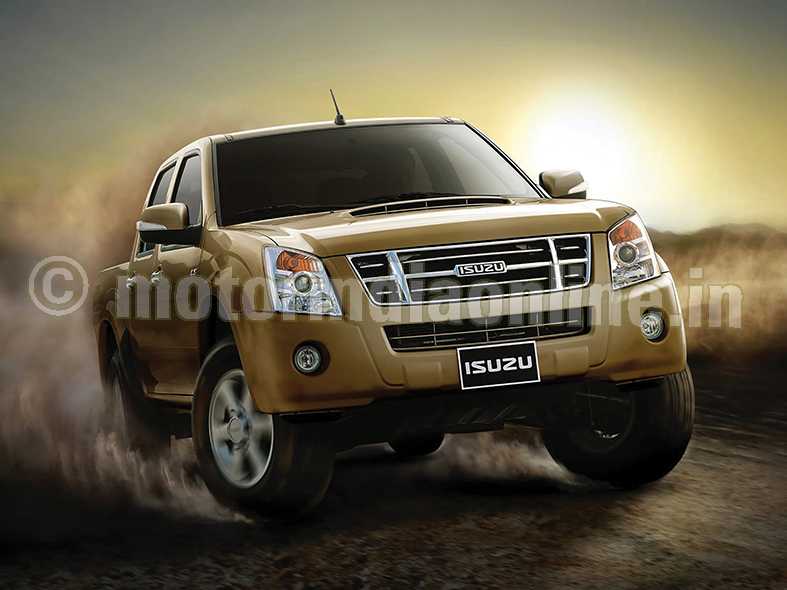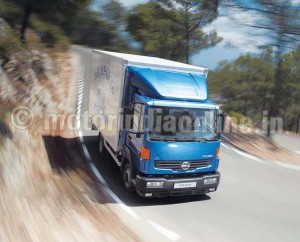The Indian automotive industry has truly come of age with many well-entrenched Japanese players gaining a foothold either in the four-wheeler or two-wheeler segment. And, of late, many Japanese automakers are keen to extend their product lines to pick-up trucks and light commercial vehicles. While some companies have already entered the non-passenger vehicle segment, the others have either announced or are on the verge of making an announcement.
The trend has already been kick-started by Japanese auto major Isuzu Motors India, which is banking on aspiring life-style seekers to drive demand for its global pick-up truck DMAX, which was launched across the country in phases. Assembled at the Hindustan Motors plant in Tamil Nadu, DMAX is available in three different variants and is priced at Rs. 5.99 lakhs to Rs. 7.09 lakhs. Although the market size is miniuscule, it will be competing with homegrown players like Mahindra (Genio, Bolero pick-ups) and Tata Motors (Xenon). Isuzu is aiming to clock around 3,600 units in this calendar year.
Mr. Takashi Kikuchi, Managing Director, Isuzu Motors India, noted that nearly 20 per cent of almost two lakh pick-up trucks sold in the country is owner-driven and is poised to almost double in the coming years. He stated: “We sell a large number of our pick-up trucks in Thailand. With the development of infrastructure and big highways, we foresee a similar trend in India.”
Mr. Shigeru Wakabayashi, Deputy Managing Director, Isuzu Motors India, said: “India is tipped to be the largest pick-up truck market in the world by 2023, and we anticipate that CVs which fall in the 2-3.5 tonne GVW bracket will grow more than four times to eight lakh units per annum in the coming decade. Isuzu would like to play a serious role in that evolution.
The company is aiming at 100 per cent localisation by 2017-18 and is also considering setting up of an engine plant in India. We are alternatively talking to other companies for sourcing engines for our trucks.”
Toeing a similar line, Maruti Suzuki India Ltd., the country’s largest passenger car maker, has also decided to enter the light commercial vehicle (LCV) segment by 2015. Incidentally, the Indian subsidiary of Suzuki Motor Corporation (SMC) was contemplating a similar move about three decades ago, but it was shelved due to inadequate demand. It must be noted that there is no definitive strategy for the sale of the upcoming LCV in terms of exclusivity of showrooms. Expected to hit markets by 2015, the Y9T-codenamed product will provide stiff competition to the Tata Ace, which has been the undisputed market leader since it was introduced a decade back. The other vehicles positioned in such a segment are Mahindra Gio, Ashok Leyland Dost, etc.
Mr. Kenichi Ayukawa, Managing Director, Maruti Suzuki, told reporters recently: “We are all set to diversify into the LCV segment by next year. We will begin the LCV project on a very limited scale and take the initiative forward by understanding the marketing and sales experience. We have not taken any call on its branding exercise and are doing the groundwork for it. Our engineers are working on adapting the diesel engine that will be fitted on a goods carrier rather than a people carrier (like Omni, Eeco). The commercial vehicle sector is a new sector for us.”
Sources have confirmed that the Indian LCV will be based on the Suzuki Carry, which is a vehicle available for sale in markets like Pakistan, China and Indonesia. Sources have also revealed that the unchristened will be powered by a brand new two-cylinder 800cc diesel engine which is in the advanced stages of development. A CNG version of the product is also slated in the eventual phase of production. People close to the development said Maruti Suzuki’s first LCV will roll out of its Gujarat plant, which will go on stream soon, in 2016.
The small commercial vehicle segment is the largest one within the commercial vehicle industry with sales of approximately 432,000 units in FY2014 contributing to 60 per cent of the overall industry. The SCV industry is expected to grow at 13 per cent CAGR till FY2020 accounting for 80 per cent of the total market, according to a recent study by Roland Berger Strategy Consultants. The need for inter-city goods and passenger transportation drives the demand for SCVs.
Yet another Japanese automaker, Nissan Motor Company, which is already developing LCVs with Ashok Leyland, is studying the feasibility of developing pick-ups for the Indian market. The company, which is already selling such products in Thailand and other countries, would like to replicate a similar strategy in two years.
Mr. Kenichiro Yomura, ex-President, Nissan Motor India, told MOTORINDIA: “The pick-up vehicle is definitely a very exciting segment and we can consider once we roll out our entire passenger car line-up by 2016.”
The other leading Japanese carmakers like Toyota, Honda, Mitsubishi, etc., are also selling pick-up trucks in Thailand, the US and other developed markets, but are yet to take a call on its roll-out in the Indian market.

